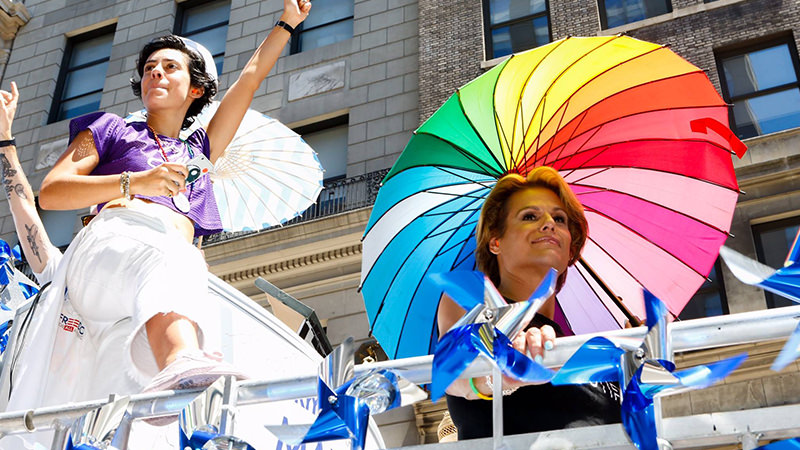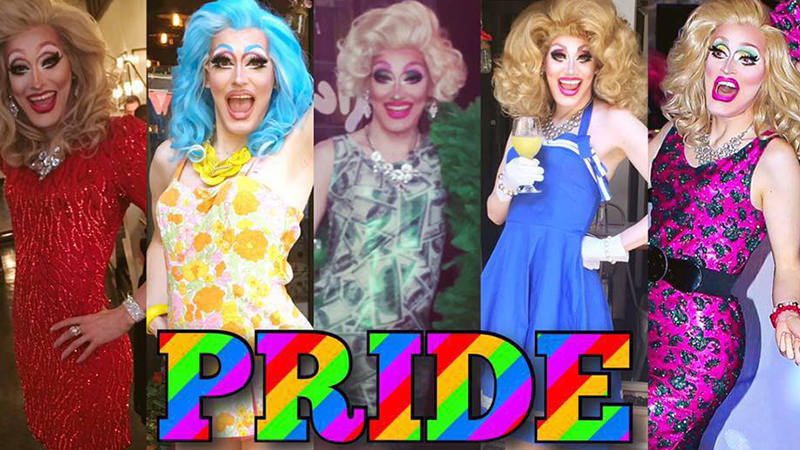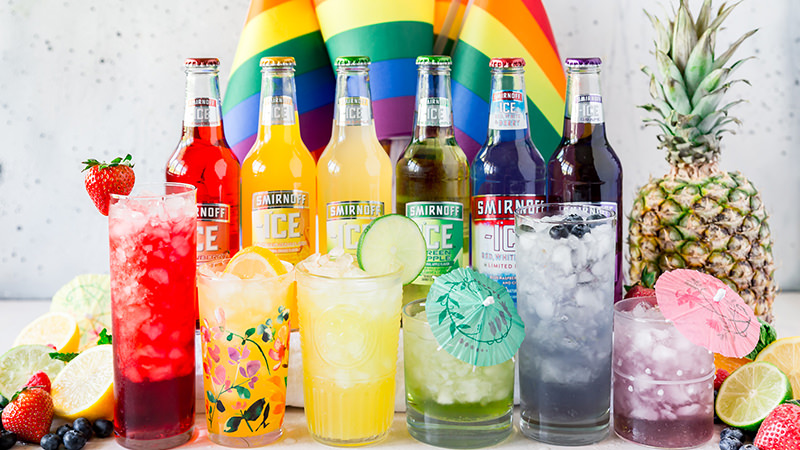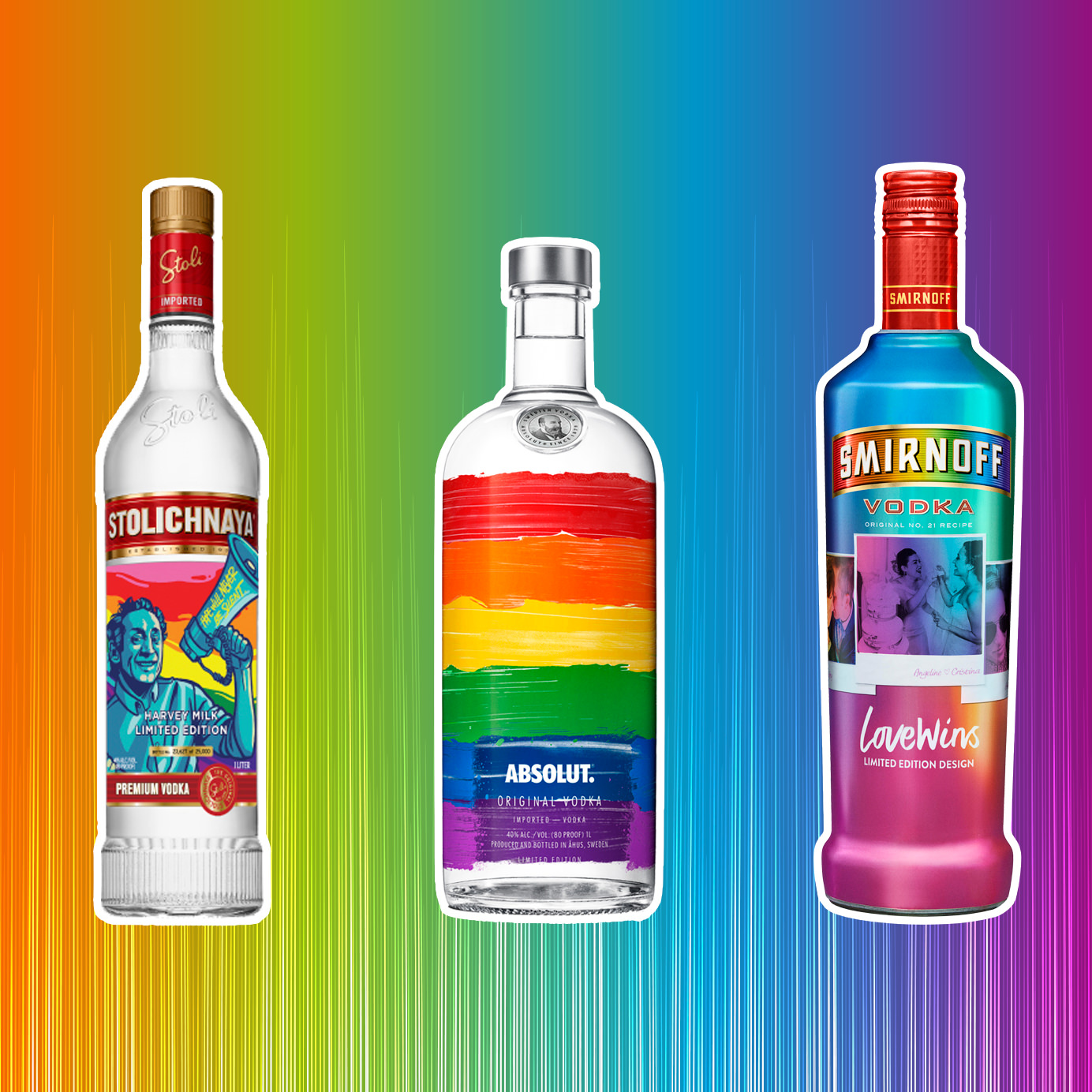June is here and, for many in the LGBTQ community and those who support them, that means Pride Month.
Lesbian, Gay, Bisexual and Transgender Pride Month, known simply as Pride Month, is celebrated each June to commemorate the 1969 Stonewall riots in Manhattan. Now in its 31st year, Pride Month is known by many for a proliferation of rainbow flags and parades across the country.
In the spirits world, though, Pride is synonymous with vodka. The neutral spirit has been embraced by gay clubs and personalities, including drag performers and disc jockeys whose appearance fees rise in tandem with the drinks sold at the bar. In turn, vodka companies are among the most market-saturating supporters — and, at times, lobbyists — for their LGBTQ audiences.
In this age of influencers and stealth marketing, it’s easy to wonder if the vodka category’s embrace of LGBTQ culture is legitimate, or just a good way to move product within a community that has some spending power.
In an attempt to clarify this like it’s been filtered through charcoal, we spoke to major vodka labels and nightlife personalities to find out how the clear spirit became the queer spirit. Or at least, the unofficial drink of Pride, in June and all year long.

Inclusive as a Brand
Absolut has a year-round Pride bottle, Absolut Rainbow. The bottle was the first spirit to feature the rainbow design, created in collaboration with the flag’s original creator, Gilbert Baker. Last year, Smirnoff launched Love Wins, a bottle design and campaign highlighting LGBTQ couples. Stolichnaya recently released a bottle in honor of Harvey Milk.
These products are designed intentionally to target the LGBTQ consumer, yes. But in each of these cases, support for Pride goes deeper than 750 milliliters.
Absolut, for example, started referencing LGBTQ culture in the 1980s. It’s a founding sponsor of the GLAAD Media Awards, and an early sponsor of RuPaul’s Drag Race. Absolut has donated more than $40 million to gay and lesbian centers such as OUTserve, OUTFEST, and God’s Love We Deliver.
Smirnoff too has supported LGBTQ rights for decades. The brand’s “Love Wins” campaign, launched in June 2017, donates $1 for every limited-edition Love Wins bottle sold to the Human Rights Campaign (HRC). After this year, Smirnoff estimates that its Love Wins bottle will have resulted in nearly $450,000 for HRC.
“We are a brand that stands for inclusivity and fun for all, and supporting the LGBTQ community is a huge part of that purpose,” Jay Sethi, Smirnoff vice president, says.
Skyy Vodka sponsors Pride parades across the country, in Los Angeles, New York, New Jersey, Austin, and Palm Springs. Skyy also supports transgender rights through partnerships with Freedom for All Americans and Amazon Prime’s “Transparent,” and claims to be the first spirits brand to air an ad featuring a lesbian couple, with “The Proposal” in 2002. The brand has also supported events like the Queerties, Frameline, the MASQ Ball, and Outfest; as well as cause-oriented organizations Project Lazarus and the Stop AIDS Project.

Why Vodka?
Vodka is the most popular spirit in the world. “Every third drink ordered in the U.S. is a vodka drink, so much as with the general consumer population, vodka is a favorite of the LGBTQ community,” Melanie Batchelor, VP marketing, Campari America, says.
Gina Tonic, a drag queen who performs at bars and venues throughout NYC, says vodka is a common choice at gay nightlife events. “It kind of goes both ways,” Tonic says. “Lots of gay bars sell lots of Absolut and Stoli. It’s because they have a lot of presence at Pride events.”
“Most other liquors are gendered male,” DJ Accident Report, a queer nightlife DJ and one-third of the Nobodies nightlife supergroup, says. “Whiskey is masculine, tequila is masculine, the imagery around it is more masculine. Vodka is kind of femme-y, but not feminine.”
“Among gay men, I would say vodka soda is the most popular drink,” Tonic says. “It’s a total generalization, but it is a very common drink choice.” Her best guess why? “Soda has no calories and vodka is the lowest calorie liquor.”
She may be referring here to vodka as friendly fuel for those seeking to attain the “gay gym body,” an ideal, advertising-driven physique of the modern gay man that renders some “literally willing to die early just to look like an underwear model,” Tyler Curry writes in Advocate.
Smirnoff identifies the LGBTQ community as one of its key markets due to its buying power. “We do know that the Smirnoff brand is category leader with the LGBTQ audience, and we also know that LGBTQ vodka category consumption has grown year over year,” Sethi says.
Tonic says there are other key reasons vodka is so popular: It’s palatable on its own, mixes with anything, and comes in a variety of flavors.
Shefali Murdia, brand director at Pernod Ricard USA, Absolut’s parent company, agrees. “Versatility is vodka’s greatest asset,” she says.
And drinking is a big part of nightlife, Tonic explains, especially for drag queens — even the sober ones. In many cases, the money a drag queen makes for a club appearance depends on alcohol sales during her set.
“Part of our job as drag queens is to drive sales at the bars,” Tonic says. She incorporates drinking games into her act, both to pump up her “lush” persona and, assumedly, the money she’ll make that night. If you’re trying to sell drinks, you may as well perpetuate the one everyone is already drinking.

To Be Real
Is the vodka category’s support genuine? “It’s hard to say,” Tonic says. “They definitely put a lot of thought behind what they do and what they give out [at Pride]. At the end of the day, any marketing is marketing. I don’t expect Absolut or any other [vodka] companies to be in Congress trying to get a trans bathroom bill through.”
Some vodka companies are, in fact, taking their support to the courts. Skyy Vodka’s proudest moment came in July 2015 when the Supreme Court ruled in favor of marriage equality in America. The company had spent two years working with Freedom to Marry’s “Toast to Marriage” campaign.
“Skyy Vodka’s commitment to the LGBTQ community goes beyond simply participating in a Pride parade and calling it a day,” says Batchelor of Campari. “Our support is long-standing and multi-faceted.”
It’s true that companies are getting more political, and that it can boost bottom lines as much as morale and activism. But akin to Johnny Walker’s Jane Walker Edition, a limited-edition bottle released in time for Women’s Month, which features a woman on the label and supports women’s causes, as long as brands’ marketing moves support the causes their consumers care about, perhaps pushing back is pointless.
“Pick your battles,” Tonic astutely advises any cynics. “We don’t go after someone who’s getting us drunk.”
